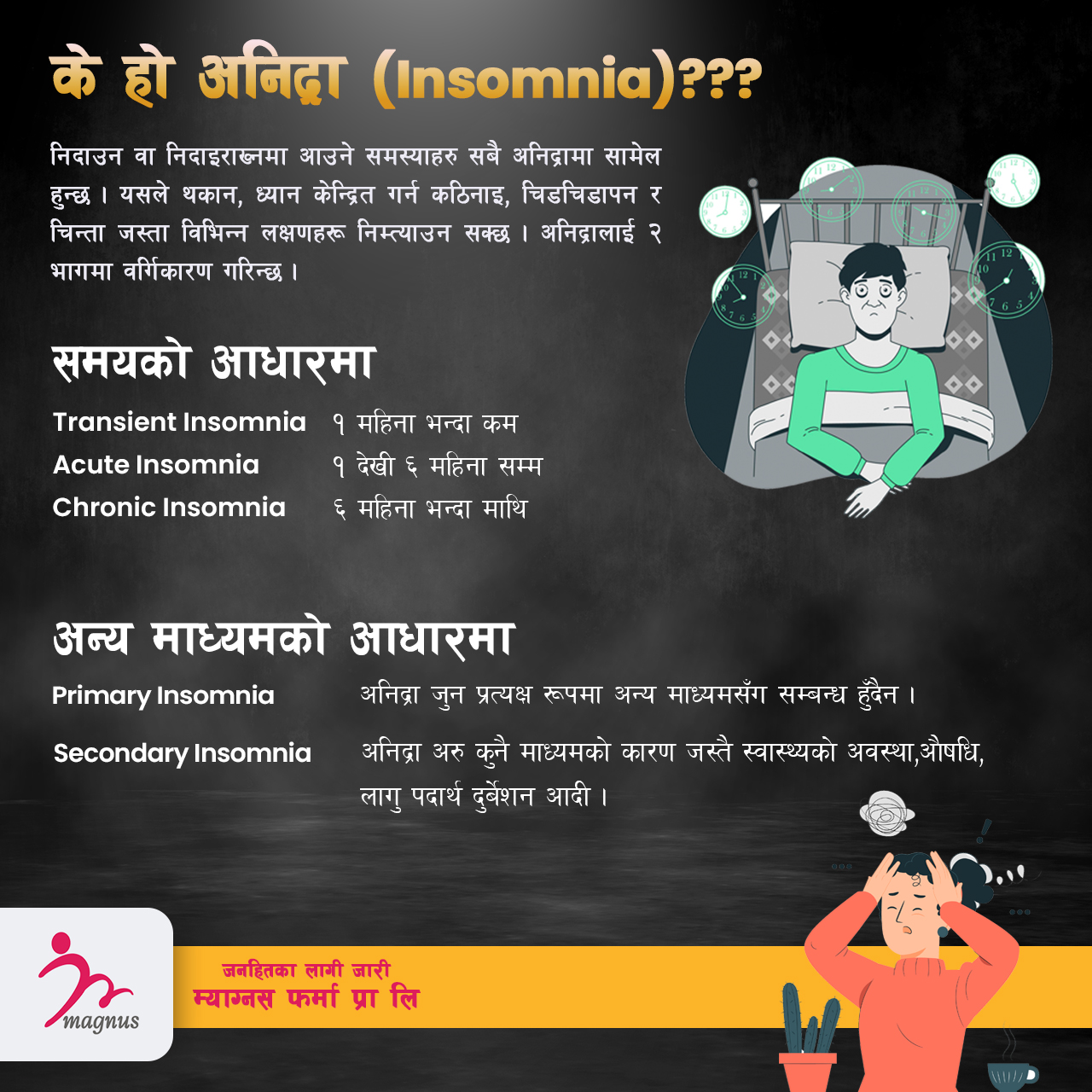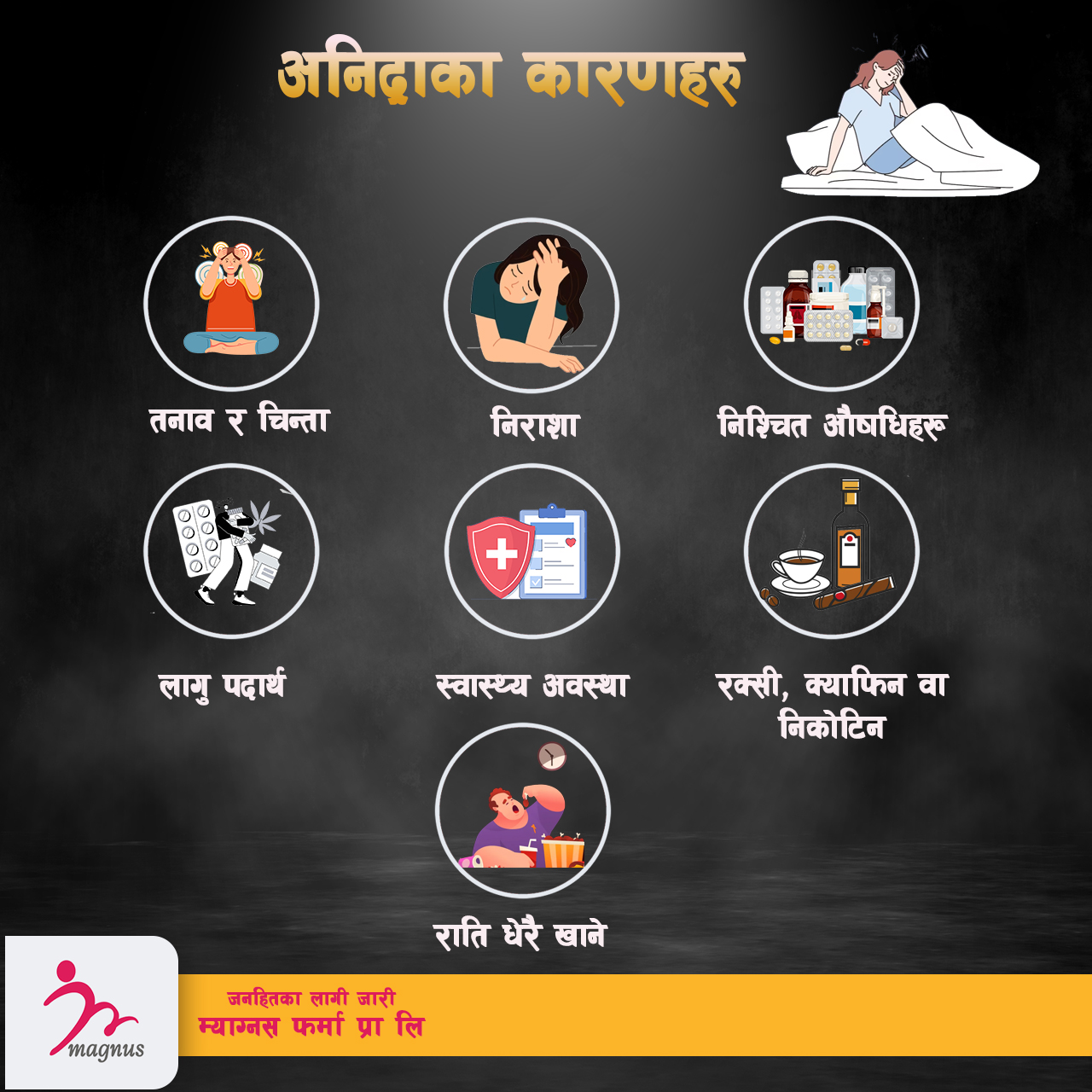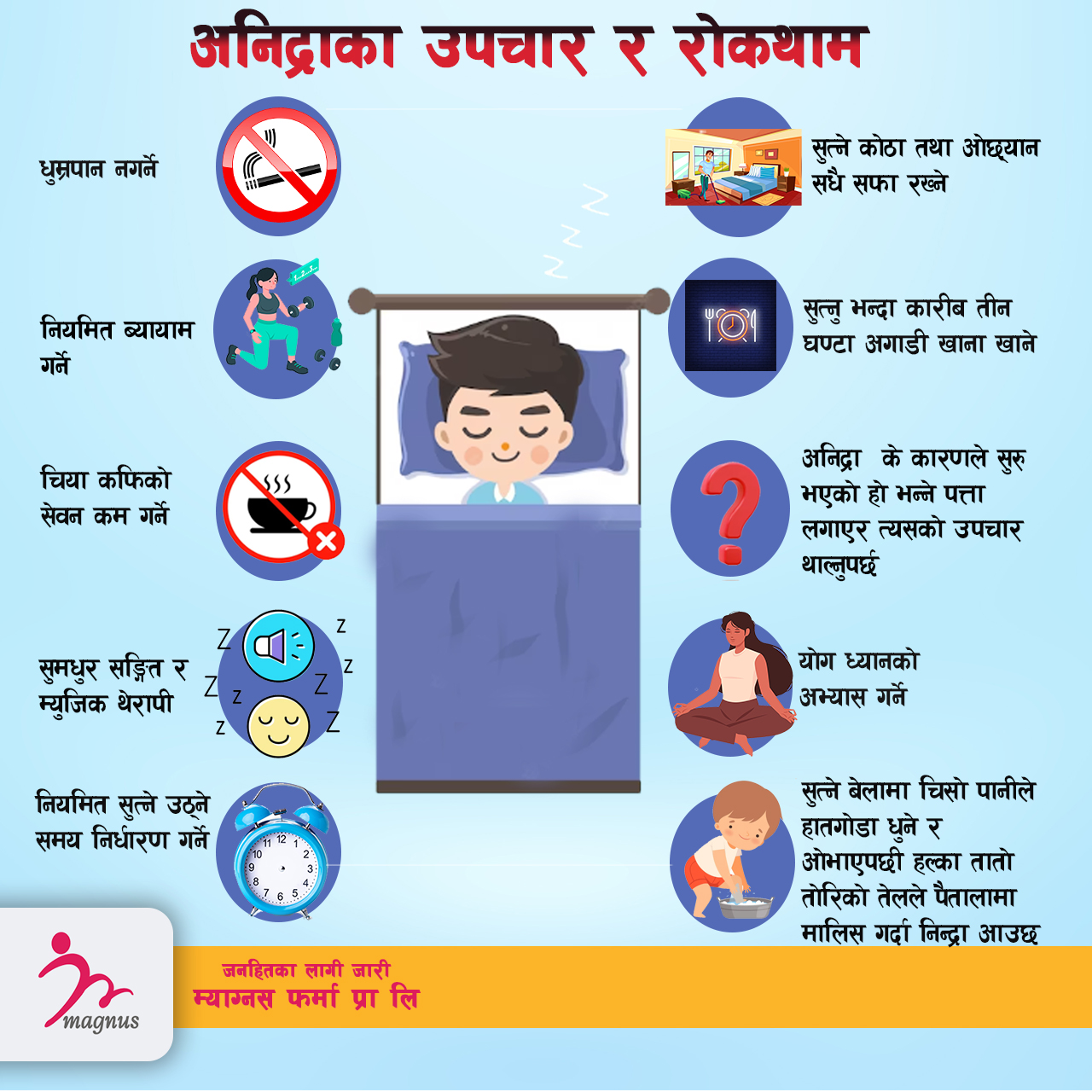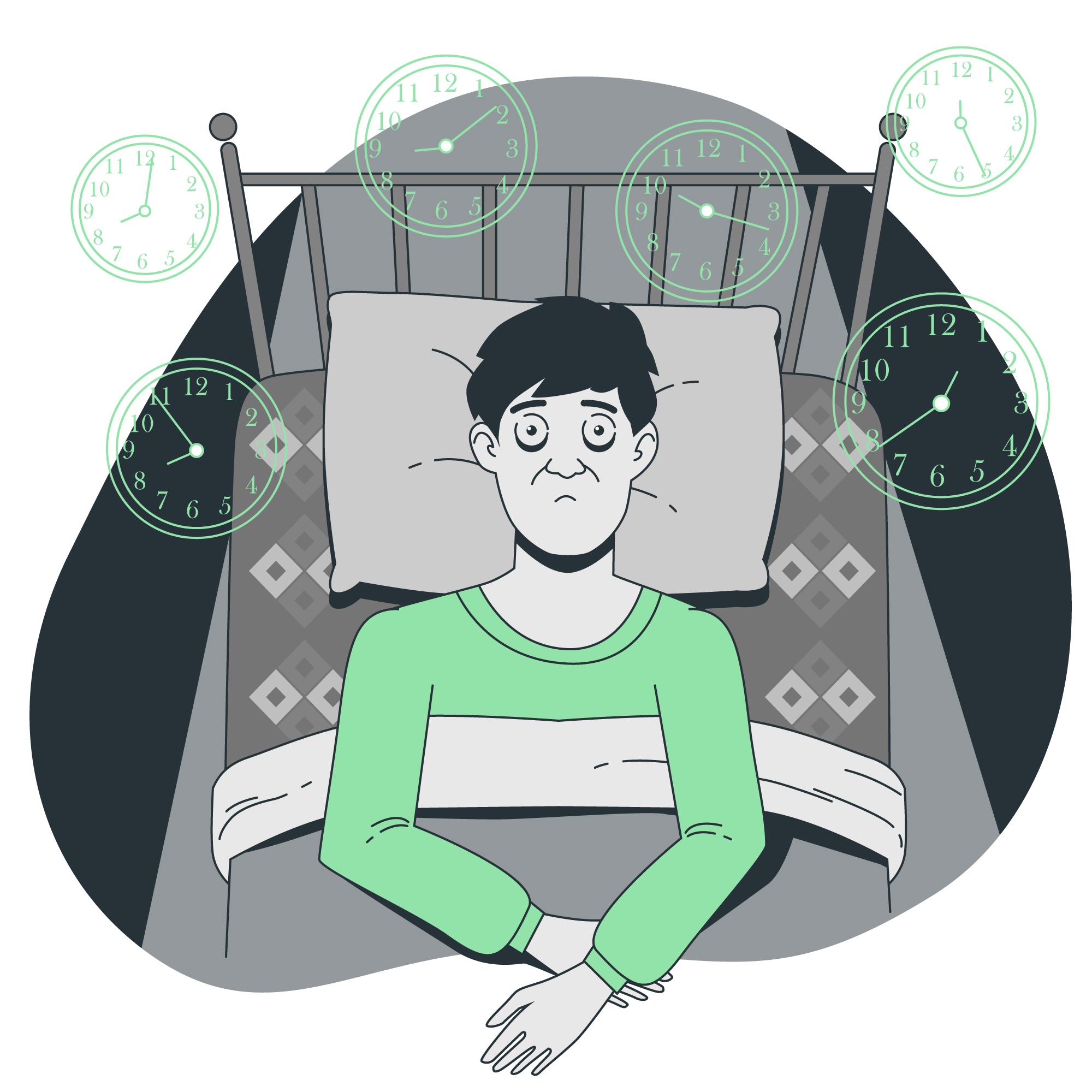April 11, 2023
Insomnia is a sleep disorder characterized by difficulty falling asleep, staying asleep, or waking up too early and not being able to fall back asleep. Insomnia can lead to daytime sleepiness, fatigue, and irritability, and can have a significant impact on a person’s quality of life. Insomnia can be caused by a variety of factors, including stress, anxiety, depression, medical conditions, medications, caffeine, alcohol, and nicotine. Treatment for insomnia depends on the underlying cause and may include medication, lifestyle changes, or therapy.
Insomnia can also be categorized based on its duration:
- Transient insomnia: This type of insomnia lasts for a few nights or weeks and is usually related to a specific event or circumstance, such as travel or a stressful life event.
- Short-term insomnia: Short-term insomnia lasts for several weeks and is often related to a specific cause, such as a medical condition or a change in medication.
- Chronic insomnia: Chronic insomnia lasts for at least three months and may be related to a medical condition, mental health disorder, or other underlying cause.
Insomnia can also be categorized based on its underlying cause:
- Primary insomnia: Primary insomnia is not caused by an underlying medical or mental health condition and is often related to stress or other lifestyle factors.
- Secondary insomnia: Secondary insomnia is caused by an underlying medical or mental health condition, such as depression, anxiety, or chronic pain.
Insomnia can also be categorized based on its severity:
- Mild insomnia: Mild insomnia is characterized by occasional difficulty sleeping, but the person is still able to function normally during the day.
- Moderate insomnia: Moderate insomnia is characterized by more frequent difficulty sleeping, which may impact the person’s ability to function during the day.
-
Severe insomnia: Severe insomnia is characterized by persistent difficulty sleeping, which significantly affects the person’s ability to function during the day and may require medical treatment.

CAUSES OF INSOMNIA
- Stress, anxiety, and depression
- Medical conditions such as chronic pain, heartburn, or respiratory problems
- Certain medications, such as antidepressants or stimulants
- Substance abuse or withdrawal, such as from alcohol or drugs
- Poor sleep habits or sleep environment, such as irregular sleep schedule or sleeping in a noisy or uncomfortable environment
- Caffeine or alcohol consumption, especially before bedtime
- Disruptive life events, such as job loss, divorce, or death of a loved one
- Restless leg syndrome or other sleep disorders
- Shift work or changes in work schedule
- Aging, which can cause changes in sleep patterns and make it harder to fall asleep
- Genetics, as some people may be more prone to insomnia due to genetic factors.

PREVENTION AND TREATMENT OF INSOMNIA
Prevention:
- Establish a regular sleep schedule
- Create a relaxing bedtime routine
- Ensure a comfortable sleep environment
- Avoid caffeine, nicotine, and alcohol
- Exercise regularly
- Manage stress
- Seek treatment for underlying medical or mental health conditions
Treatment:
- Cognitive Behavioral Therapy (CBT) to change negative thoughts and behaviors related to sleep
- Prescription sleep medications, such as benzodiazepines or non-benzodiazepine sedatives, as a short-term solution
- Over-the-counter sleep aids, such as melatonin supplements, for short-term use
- Relaxation techniques, such as deep breathing or progressive muscle relaxation
- Light therapy, which involves exposure to bright light to reset the body’s sleep-wake cycle
- Sleep restriction therapy, which limits the amount of time spent in bed to promote more efficient sleep
- Addressing any underlying medical or mental health conditions contributing to insomnia, such as depression or chronic pain
- Combination therapy, such as CBT plus medication or light therapy, for more severe or chronic cases of insomnia
It’s important to talk to your healthcare provider if you are experiencing persistent trouble sleeping, as they can help determine the best course of treatment for your individual needs.

